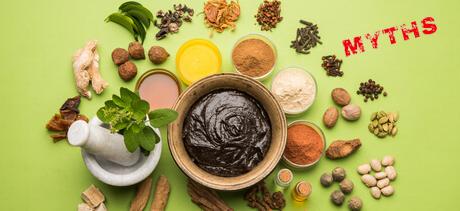
10 Herbal Medicine Rules That Are Actually Myths
Did you grow up hearing certain rules about herbal medicine? While many tips and tricks for using herbs medicinally are quite sound, some are actually myths. It’s a good idea to know which rules you should abandon if you’re planning to boost your health with herbs, so we’ve put together a list of some of the most common myths out there.
1. You Can’t Take Herbal Medicine with Western Medicine
Like any other medication, herbal medicine can interact with other remedies you’re taking, herbal or allopathic. However, that’s not true of all medicines and herbs, so you should look into the interactions if you are taking a regular drug and need to add some herbal goodness to your life. You may be surprised at how well they go together.
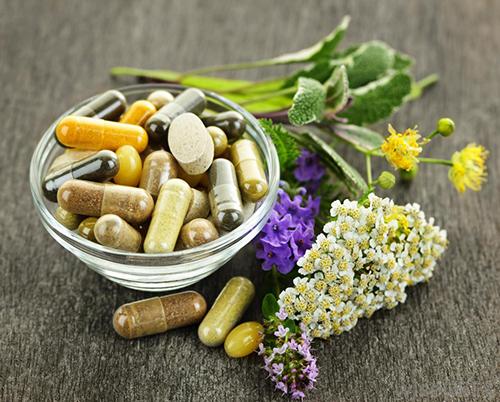
2. Herbal Medicine is Safer Than Allopathic Medication
Just because it’s natural, doesn’t make it safe. After all, arsenic is also natural and most certainly not a safe thing to ingest. When you’re looking at herbal medicine, it’s very important to learn about the herbs you intend to use. There are side effects from plants, just as there are from over the counter medications.
You shouldn’t attempt a remedy until you’ve looked into the possible effects. Don’t forget to check if there are side effects when two or three herbs are mixed or if you use a herbal remedy with a chemical one.
3. You Can’t Have Chamomile Tea If You Have Hayfever
Hayfever or allergies to plants that come from the daisy family, which chamomile does, is caused by inhaling the pollen from the plants. As long as you’re not the one brewing the tea, you shouldn’t have a problem. The tea is made from flowers and leaves that are brewed, so you won’t be inhaling anything.
Of course, if you have a more severe allergic reaction to these plants, you should certainly avoid chamomile completely.
4. Herbs Should be Used Fresh for Medicinal Purposes
You may have heard that herbs are best when used fresh, but this is actually dependent on the herb. Some, such as parsley and dill, tend to be more useful fresh. Others, such as oregano or rosemary, are quite potent when dry. You should always do your research before deciding on whether to use herbs fresh or dried.
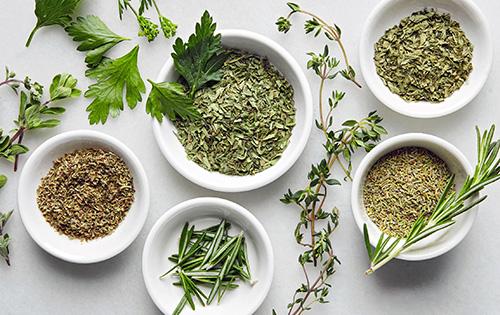
5. You Need to Take Herbal Remedies for Weeks to Get Results
Some medicinal herbs do take time to build up in the system and provide you with maximum results. However, many will affect you rapidly and give you the results you’re looking for. Peppermint soothes a headache rapidly, while ginger can ease nausea shortly after you sip some tea. Again, it’s about knowing your herbs and how they work. When you understand how they function, you can select the options that will give you the best results in the shortest period of time.
6. You Should Take One Herbal Remedy at a Time
If you have a headache, you might turn to willow bark or peppermint, but would you ever mix them? The general rule of thumb in many cases is to use just one herbal medicine at a time. However, like conventional medicines, herbs can be blended to create more powerful remedies.
For example, mixing ginger, peppermint, and chamomile can give you a tummy soothing tea that will be stronger than just one of these ingredients on its own. Of course, you should know if there are any interactions with these, but for the most part, mixing means it’s a stronger option.
7. It’s Essential to Measure Your Herbal Medicine
To a certain extent, this rule is true. What it doesn’t take into consideration, though, is how potent each plant is. Depending on where it’s grown and the age of the plant, it’s medicinal properties could be stronger or weaker. There are no standards here, so when working with a plant that may have more undesirable side effects, be sure to start with the lowest dosage.
This ensures you’ll avoid overdosing if you end up with a stronger plant. In many cases, an exact dosage isn’t necessary anyway, so don’t stress too much over it.
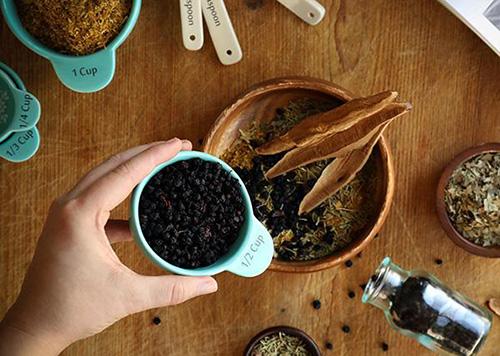
8. Only Herbalists Recommend Herbs as Remedies
Surprisingly, this is not true these days. In fact, more and more doctors are coming on board with natural options and you may be surprised to find your general practitioner prescribing ivy cough syrup or honey for a sore throat. Herbalists are not the only ones who see the value in herbs.
9. You Should Always Take the Herb, Not the Medicine Made from It
Some medicines are derived from plants and at first glance, it may seem like a good idea to just use the herb on its own. However, it is not always safe to do this! For example, a cardiac drug is made from foxglove flowers, but if you were to use one of these plants in your natural remedies, it would kill you quite rapidly. Research is key!
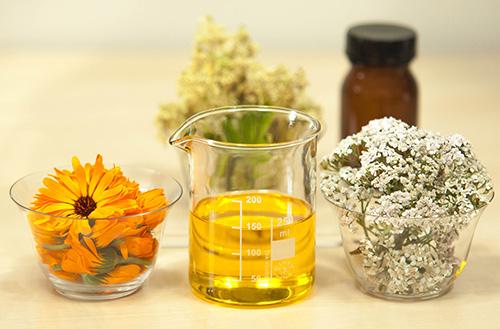
10. Herbs Need to Be Ingested for Relief
While it’s true we often focus on teas and tinctures that you can drink to receive the benefits of the herbs, that’s not the only way to use them. In fact, some herbs work better outside the body. Lavender, for example, is excellent for aromatherapy, and comfrey leaves can be turned into a poultice for bruises. There are plenty of herbs and ways to use them that do not involve actually eating or drinking them.
There are a lot of “rules” that have popped up over the years on how to use medicinal herbs. It’s one of the main reasons you should always do your own research about the plants you use. Some rules, such as not taking St. John’s Wort with birth control pills, are true and should be followed. However, many just don’t apply or were originally developed before more recent advances in medicine.
What rules about herbal medicines have you heard that turned out to be myths?
You may also like:
 5 Myths About Organic Gardening
5 Myths About Organic Gardening
The SHTF Medicinal Garden You Should Have in Your Backyard (Video)
50 Essential Uses of Apple Cider Vinegar
Why Put Onions in Your Socks Before Sleeping

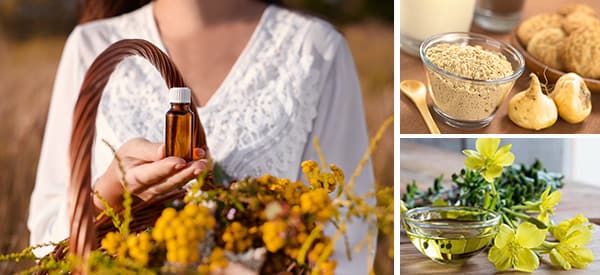
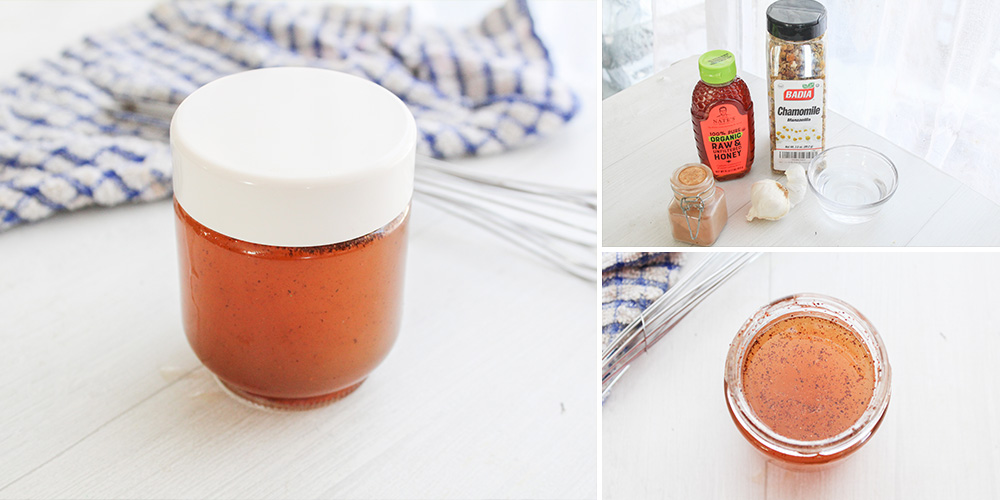
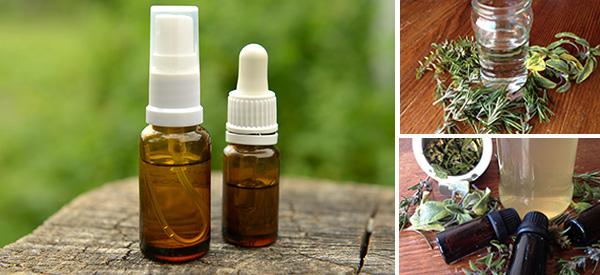
Question: What herbs get rid of aspiration pneumonia? My husband has aspirated 5 times. He’s been in the hospital 8times in 2 months. He is on dialysis. He had a stroke May 2017, leaving him paralyzed on the right side. One day while feeding him lunch his oxygen was taken and it was 78% rather than the minimum 90%. His medicines are blood pressure meds: Hydralizine 50 mg 3xxx daily, Carvedilol 25 mg 2xx daily, Amlidopine 10mgs. 1xx daily., A mulitvitamins Vof:itamins B6, B12, Folic Acid. Miralax/Senna Exon stool softner, Pepcid 20mg. daily, Apirin 81 mg. daily, He’s in the hospital now his blood culture results are negative bacteria in the blood. I’m making Ginger, Cinnamon, Mint Tea, Lemon/Limeade w honey fresh squeezed, Ive made a soup of basil, water rest, carrots, fennel seeds, turmeric,and garlic. What would you use and how?
Hi Ramona,
We are sorry to hear about your husband condition.
You can try using Eucalyptus and Tea Tree Oil Chest Rub and Heat Pack.
Mix 20 drops of either Eucalyptus or tea tree oil with 1 tablespoon of any carrier oil. Rub it on his chest at night before going to sleep. You can adjust the quantity of the oils if you want to make more quantities of the chest rub.
You can also try Coltsfoot tea, Echinacea, Goldensal, Pleurisy Root, Turpentine and Camphor Massage and don’t forget about the steam bath.
God bless and Wish the best of health!
People tend to forget or just don’t know that many of the pills they take interact sometimes badly with herbal medicine. I have a friend who had a bad headache and nothing to help it. She watched as I made her a draft of willow bark tea (heavy on the honey). She didn’t tell me her husband had gone to the store to get her some aspirin. As soon as he got home she asked for the aspirin and was about to take two. I told her she had just taken two aspirin. If she had taken two more it may not have ended well.
Research is so key but many don’t understand the interactions. A good follow up on any book on herbal medicine is a list of interactions between them.
Hi Heidi,
Thank you so much for your comment.
Your point of view is true! I appreciate that you rose the awareness.
God bless!
I took trazodone with Valerian root and had severe heart pounding! Not right away…usually I’d be asleep but stayed awake that night and it happened. Not true with either med alone….just combined. I WISH there was a database for these things.
What is a good, reliable resource to use when looking for information on interactions and what herbs can safely be used together? There’s a whole lot of information out there, but I am still learning and wouldn’t feel comfortable assuming that just any info I find is accurate.
Thank you!
Hi Niccole,
Thank you so much for your comment.
If you are under Western medication, I advise you to ask your doctor about the interaction between the remedies. However, if you want to do a research on it, you should look on different medicine sites.
God bless!
webmd.com has a lot of information about various herbs and their interactions with medications.
I love this book. It give a photo id and a discripion. It is written in understandable terms. A great helpful read for all.
Hi Cheryl,
Thank you so much for your comment and for your feedback as well.
It is very much appreciated!
God bless.
I do not have gull bladder anymore. They took it from me. What do I do now?
Hi Carol,
Thank you so much for your comment.
You can lead a perfectly normal life without a gallbladder. Your liver will still make enough bile to digest your food, but instead of being stored in the gallbladder, it drips continuously into your digestive system.
However, I advise you to eat food rich in B Vitamins and Vitamin C,as an antioxidant and for immune support.
God bless!
Thank you so much for the info on chamomile. I stopped growing it and giving it to my boys due to their allergies. Also, I air dry my herbs on a screen for several days, then store them in plastic bags for up to a few years. Is this safe? I am a little concerned that mold may grow on them if moisture is unknowingly introduced. My son is allergic to mold and triggers his asthma attacks.
What’s the remedy for hay fever ?
What’s the remedy for hay fever ?